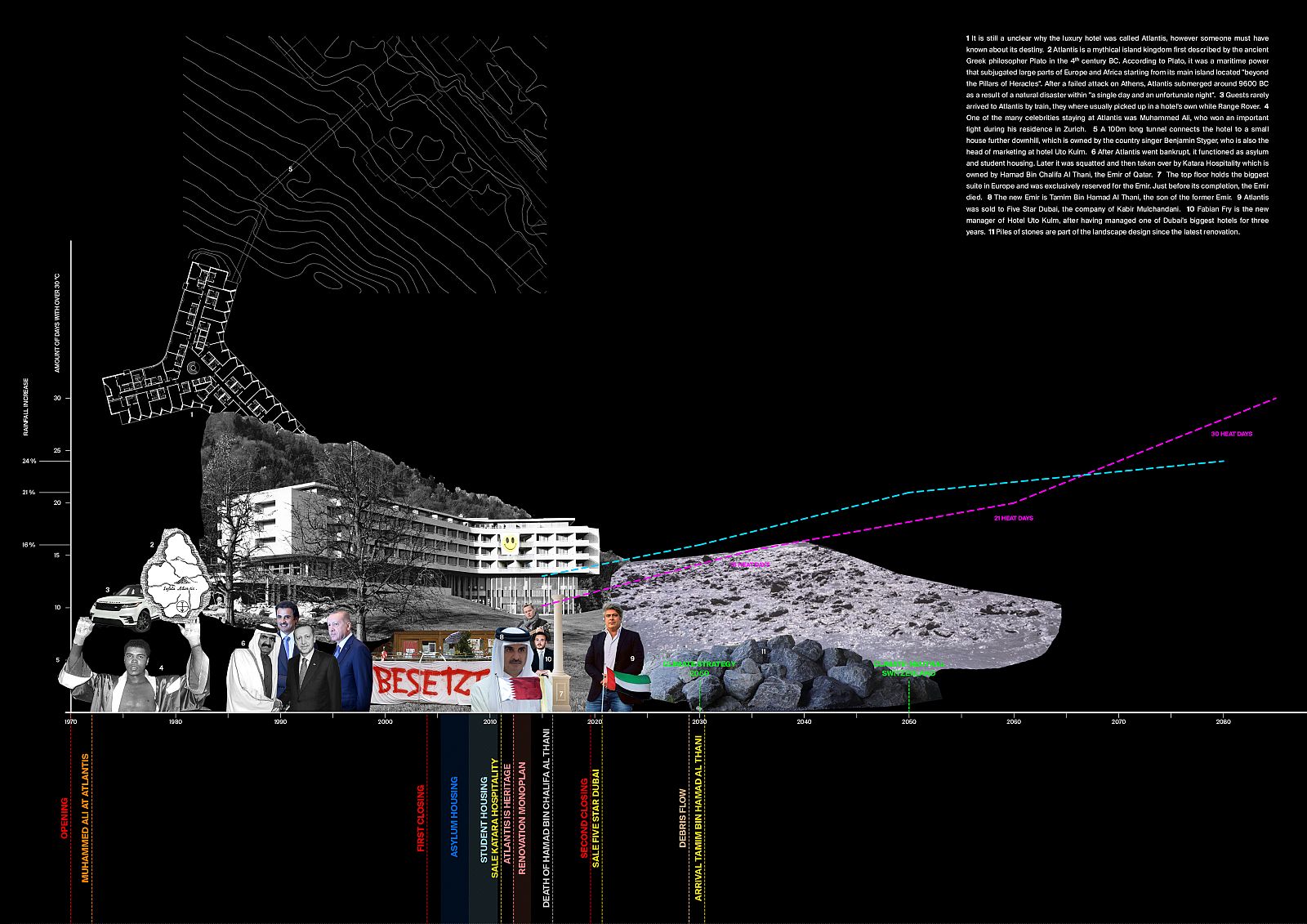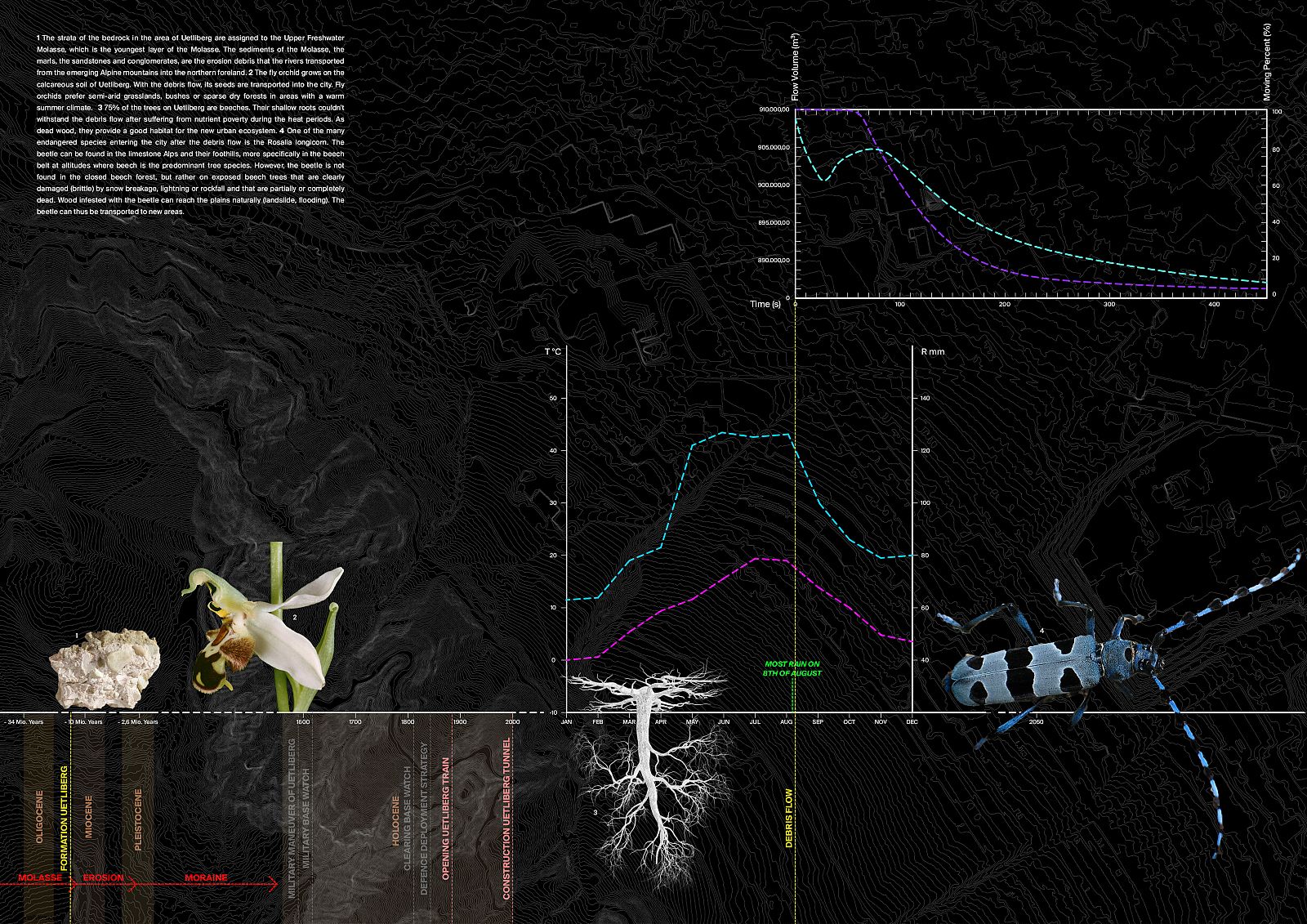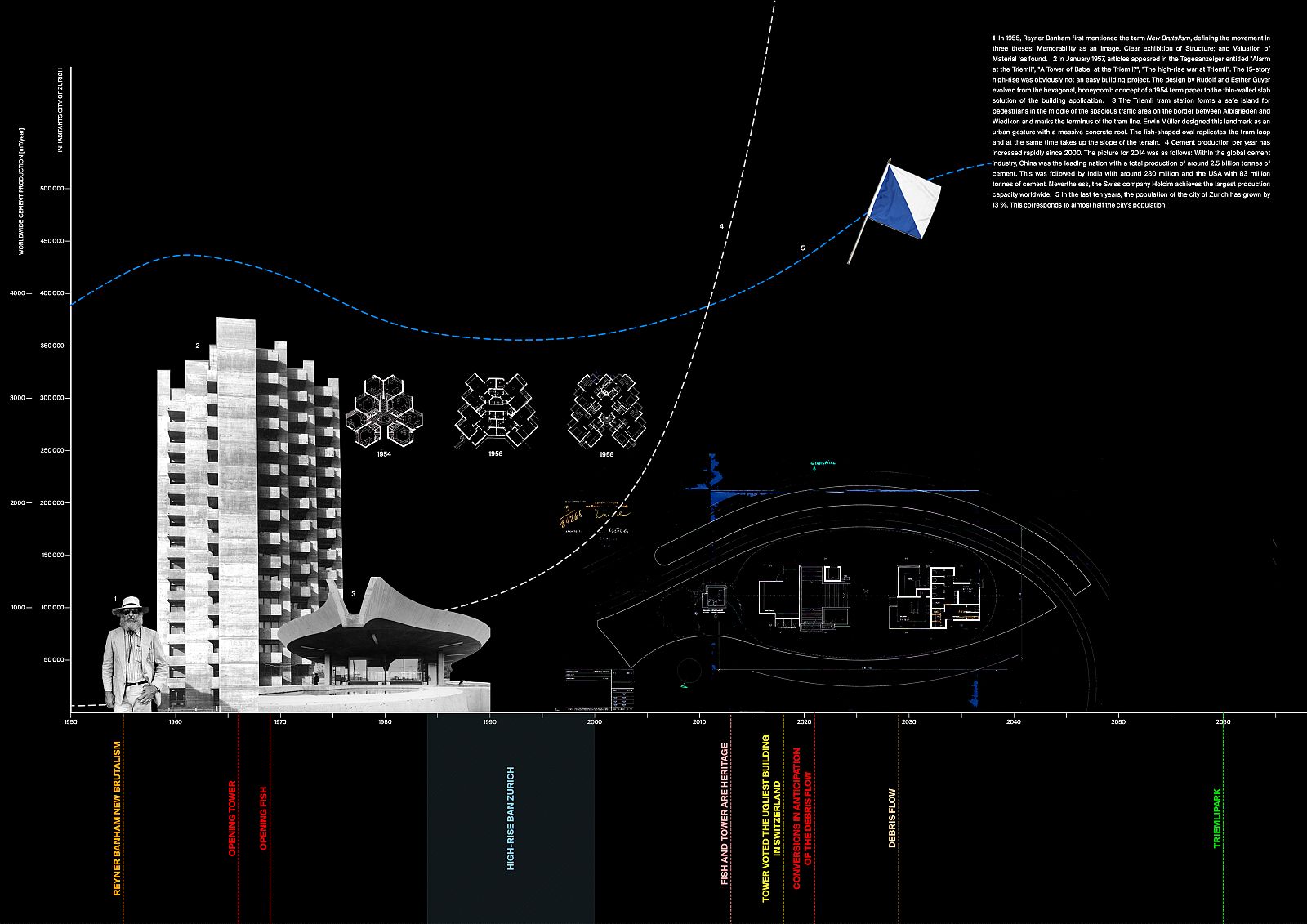The only thing we have to fear is fear itself. When heavy rain periods follow heat waves, the chance for landslides increases. Triemligang, released at Uetliberg, follows Döltschibach. Within less than 500 seconds, over 900.000 m3 of earth rushed into the area of Triemli. The debris flow grinded to a halt on the traffic junction of Triemli Platz, forming a talus where the terrain is less steep.
In expectation of Triemligang, some buildings in the area were rebuilt. The slabs of the 3rd floor of the tower were removed to allow a double height at the new ground floor in the year 2021. The existing windows got replaced by new windows that can be opened entirely. The lift and staircase at the tram station were extended providing access to underground spaces. A roof was built to cover the new entrance. The debris flow arrived in 2029 and carried down different materials like rocks and dead wood which became part of the new urban landscape. As the soil was never removed, an enormous variety of plants could spread. One of the many endangered species entering the city with the debris flow was the Alpine longhorn beetle that can be found on exposed beech trees that are partially or completely dead. Wood infested with the beetle can reach plains naturally through landslides.
For a long time, it was unclear why the hotel at Triemli was called Atlantis in 1970. The top floor of the hotel held the biggest suite in Europe which was exclusively reserved for Sheikh Hamad Bin Chalifa Al Thani, the Emir of Qatar. Unfortunately, the Emir died in 2013, just before the renovation of his suite was completed. Nevertheless, in 2021, props were added on the 4th floor to guarantee the presidential suite to stay in situ while giving temporal support. The regular supports were gashed. With the debris flow, Atlantis sinks however the suite withstands.
Only discomfort could bring about real change. Only when they had to leave their comfort zone did an active will for change emerge among people. The perception of a debris flow as a natural disaster changed to an understanding of the positive consequences of the incident. It brought the realisation that we are part of nature and cannot work against it. In a way, the word natural disaster prevented us from taking responsibility for our existence. It made these events seem sporadic, inevitable, as if we were being attacked by nature at random, rather than looking at our own role in things. Our built objects are now no longer thought of in isolation from their environmental context. The new architecture is in exchange with natural phenomena. The debris flow was the radical version of this theory of the dissolution of conceptualizations such as inside and outside.
The future is unpredictable. It will continue to bring many surprises.


